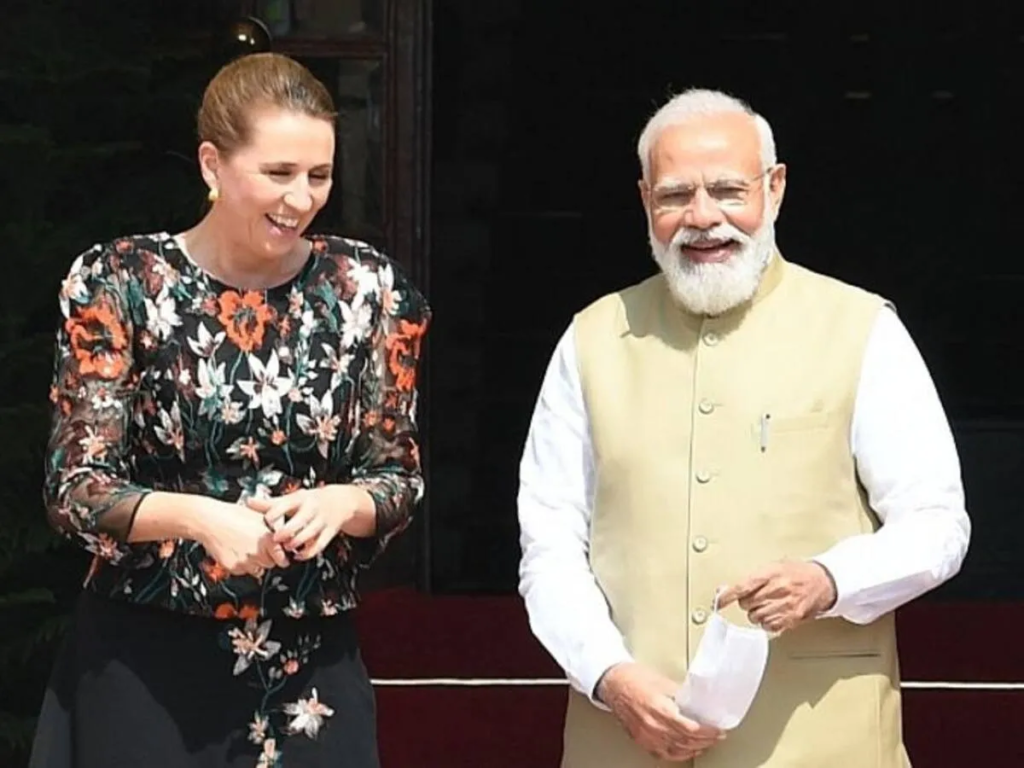
By Professor Habib Al-Badawi
In an era where geopolitical certainties are increasingly rare, Canada finds itself at a defining crossroads that will test not only its political resilience but the very essence of its sovereign identity. The sudden departure of Finance Minister Chrystia Freeland, coupled with mounting pressures from the incoming U.S. administration under President-elect Donald Trump, has created a perfect storm that challenges Canada’s traditional positions of measured diplomacy and economic independence. This moment demands not just careful analysis but a fundamental reassessment of how Canada positions itself in an increasingly volatile global landscape.
The Anatomy of a Crisis
The current political turbulence in Ottawa represents more than a typical governmental reshuffling; it embodies a clash between competing visions for Canada’s future. Freeland’s resignation, precipitated by disagreements over fiscal policy in the face of looming American tariffs, illuminates the deeper fissures in Canada’s political and economic framework. Her departure, described as a principled stand against what she termed “costly political gimmicks,” reveals the tension between short-term political expediency and long-term national resilience.
The timing of this political upheaval could not be more critical. As Canada grapples with internal discord, President-elect Trump’s provocative rhetoric about Canada becoming the “51st state” strikes at the heart of Canadian sovereignty concerns. This comment, while dismissed by many as characteristic bombast, nonetheless reflects a troubling undercurrent in the bilateral relationship: the persistent challenge of maintaining autonomous national identity while deeply integrated with a much larger neighbor.
The Rhetoric of Diminishment: Analyzing Trump’s “51st State” Commentary
President-elect Trump’s statement on Truth Social that “Many Canadians want Canada to become the 51st state” and that Canadians “would save massively on taxes and military protection” represents more than mere political rhetoric; it embodies a fundamental misunderstanding—or perhaps deliberate mischaracterization—of Canadian national identity and sovereignty.
The timing of Trump’s comments, coinciding with Trudeau’s domestic political crisis, appears calculated to exploit Canadian vulnerabilities. By referring to Trudeau as the “governor” of Canada in subsequent posts, Trump employs a rhetorical strategy that seeks to diminish Canada’s status as a sovereign nation. This language choice is particularly significant as it attempts to reframe the relationship between the two nations from one of sovereign equals to one of subordination.
Economic Sovereignty in an Age of Interdependence
The economic dimensions of this crisis demand particular attention. Canada’s export-dependent economy, with approximately 75% of its exports destined for the United States, creates a vulnerability that requires delicate management. Trump’s threatened 25% tariff on Canadian goods represents more than a mere trade dispute; it constitutes a direct challenge to Canada’s economic sovereignty and its ability to pursue independent policy objectives.
Freeland’s warning about maintaining “fiscal powder” for a potential tariff war reflects a sophisticated understanding of the challenges ahead. The fundamental question facing Canadian policymakers is how to preserve economic autonomy while managing the reality of deep economic integration with the United States. This balance becomes even more precarious when considering Canada’s critical role in supplying the U.S. with essential resources—from energy to critical minerals—creating a complex web of mutual dependency that defies simple solutions.
The Economics of Independence
Trump’s economic arguments deserve scrutiny. The claim that Canadians would “save massively on taxes” oversimplifies the fundamental differences between Canadian and American social systems. Canada’s tax structure supports a comprehensive social safety net, including universal healthcare, which reflects deeply held Canadian values and social priorities. The suggestion that tax savings alone could compensate for the loss of these distinctive Canadian institutions demonstrates a profound misunderstanding of what Canadians value in their society.
The Leger poll showing only 13% of Canadians would consider U.S. statehood becomes more significant in this context. This overwhelming rejection of integration with the United States reflects not just political preference but a deep-seated commitment to Canadian values and independence. The fact that 87% of Canadians reject the idea, even in the face of economic pressures and potential benefits, speaks to the resilience of Canadian national identity.
Cultural Sovereignty and National Identity
Canadian sovereignty in the 21st century requires a nuanced understanding of what independence means in an interconnected world. Traditional concepts of sovereignty, focused primarily on territorial integrity and political autonomy, must evolve to encompass economic resilience, cultural distinctiveness, and technological self-sufficiency. The current crisis offers an opportunity to redefine and strengthen these aspects of Canadian independence.
Trump’s comments inadvertently highlight the importance of cultural sovereignty in maintaining national independence. The casual suggestion that Canada could simply become another U.S. state ignores centuries of distinct cultural development, including Canada’s unique bilateral heritage, its official policy of multiculturalism, and its distinctive approach to social issues. This cultural distinctiveness serves as a buffer against economic and political pressure, providing a foundation for resistance to integration proposals, no matter how they are framed.
Leadership in Crisis

Prime Minister Trudeau’s government faces a moment of truth that transcends partisan politics. The calls for his resignation from opposition leaders and members of his own party reflect not just political opportunism but genuine concern about Canada’s direction in this crucial period. The challenge for any Canadian leadership, whether current or future, lies in crafting a response that balances pragmatic necessity with principled independence.
The political turmoil surrounding Freeland’s departure and the disagreement over fiscal measures highlight a broader debate about governance in times of external pressure. The proposed tax holiday and relief checks, while potentially politically expedient, raise legitimate questions about fiscal responsibility in the face of looming economic challenges.
Strategic Implications for Canadian Foreign Policy
The current situation necessitates a strategic reassessment of Canadian foreign policy, including:
- Cultural Protection: Strengthening support for Canadian cultural institutions and media to maintain distinct national identity.
- Digital Sovereignty: Developing strategies to maintain Canadian sovereignty in digital spaces and social media platforms.
- Diplomatic Diversification: Strengthening relationships with other global powers to reduce dependency on the United States while maintaining the important bilateral relationship.
- Economic Resilience: Developing strategies to protect Canadian industries from external pressure while building new international partnerships.
- Military Sovereignty: Continuing to develop independent military capabilities while maintaining strategic alliances.
Future Implications and Recommendations
Looking forward, Canada must develop comprehensive strategies to address both immediate challenges and long-term sovereignty concerns. This includes:
- Cultural Reinforcement: Continuing to invest in Canadian cultural expression and identity.
- Digital Sovereignty: Building capacity to maintain sovereign control in digital spaces.
- Economic Innovation: Developing new economic sectors and capabilities to reduce vulnerability to external pressure.
- International Engagement: Strengthening Canada’s role in international institutions and alliances.
- Strengthening Democratic Institutions: Ensuring Canadian democratic institutions remain robust and resistant to external pressure.
Redefining Sovereignty in an Age of Complex Interdependence
The examination of Canadian sovereignty through the lens of complex interdependence, constructivist theory, and critical political economy reveals that Canada’s current challenges extend far beyond traditional concepts of territorial integrity or political autonomy. As Canada navigates the turbulent waters of renewed American pressure and domestic political upheaval, several crucial insights emerge.
First, the study demonstrates that Canadian sovereignty in the 21st century operates on multiple, interconnected levels. The traditional Westphalian concept of absolute territorial sovereignty has given way to a more nuanced reality where power and autonomy exist on a spectrum. Canada’s response to external pressures, particularly those emanating from the United States, illustrates how modern nations must balance integration with independence, cooperation with autonomy, and economic interdependence with political self-determination.
The emergence of distinct patterns of resistance to integration, exemplified by the overwhelming rejection of U.S. statehood in public opinion polls, validates constructivist theories about the durability of national identity. Even in the face of potential economic benefits, Canadians’ attachment to their distinct social, cultural, and political institutions demonstrates how shared values and collective identity serve as bulwarks against external pressure. This finding suggests that sovereignty in the modern context is as much about cultural and social self-determination as it is about formal political independence.
Perhaps most significantly, the study reveals how Canada’s experience offers insights into how middle powers can maintain meaningful autonomy within asymmetric relationships. The critical political economy perspective illuminates how Canada’s strategic management of its economic relationship with the United States—while simultaneously pursuing diplomatic and economic diversification—represents a sophisticated approach to preserving sovereign capability in an interdependent world.
Looking forward, this analysis suggests that Canadian sovereignty will increasingly depend on the nation’s ability to develop new forms of resilience, particularly in emerging domains such as digital governance and cultural production. The theoretical framework developed here points to the importance of viewing sovereignty not as a fixed state to be defended but as a dynamic capability to be cultivated and adapted to changing circumstances.
Accordingly, Canada’s current sovereignty challenges represent more than a temporary crisis; they embody fundamental questions about how nations maintain meaningful independence in an interconnected world. The answers Canada develops to these questions—through policy innovation, institutional adaptation, and strategic diplomatic engagement—may well serve as a model for other middle powers seeking to navigate the complex terrain of 21st-century sovereignty. As global power dynamics continue to evolve, Canada’s experience demonstrates that sovereignty, properly understood and carefully cultivated, remains a vital concept in international relations, even as its meaning and manifestation continue to evolve.
The path forward for Canada lies not in choosing between integration and isolation but in developing sophisticated approaches to managing interdependence while preserving essential elements of national autonomy. This balancing act, informed by both theoretical understanding and practical necessity, will likely define not just Canada’s future but the future of sovereign nations in an increasingly complex global order.
Concluding Remarks
The defense of Canadian sovereignty in this time of turmoil is not just about resisting external pressures or maintaining political independence. It is about actively shaping a future where Canada can thrive as a distinct, prosperous, and influential nation. This requires courage, vision, and an unwavering commitment to the values and interests that define Canada as a sovereign nation.
The challenge posed by Trump’s “51st state” comments and accompanying tariff threats represents more than a temporary political crisis; it signifies a fundamental challenge to Canadian sovereignty that requires a comprehensive and sophisticated response. Canada’s ability to maintain its independence while managing complex relationships with larger powers will define its future as a sovereign nation.
Success in this endeavor requires not just political leadership but active engagement from all sectors of Canadian society. The response must balance pragmatic economic interests with principled independence, maintaining social cohesion while pursuing necessary reforms, and protecting Canadian values while engaging constructively with international partners.
In this critical moment, Canada must draw upon its historical strengths—its commitment to democracy, diversity, and diplomatic engagement—while developing new capabilities and approaches to address contemporary challenges. The true measure of success will be not just in weathering the current storm but in emerging stronger, more resilient, and more capable of charting an independent course in an increasingly complex world.
Bibliography:
Anderson, B. (2006). Imagined Communities: Reflections on the Origin and Spread of Nationalism (Revised ed.). Verso.
Bradford Betz. (2024). Trump says U.S. subsidies to Canada ‘make no sense,’ suggests Canadians want to become 51st state. Fox News. Retrieved December 20, 2024, from https://www.foxnews.com/politics/trump-says-us-subsidies-canada-make-no-sense-suggests-canadians-want-to-become-51st-state
Clarkson, S. (2008). Does North America Exist?: Governing the Continent After NAFTA and 9/11. University of Toronto Press.
Cooper, A. F. (2014). “Squeezed or Revitalized? Middle Powers, the G20 and the Evolution of Global Governance.” Third World Quarterly.
Cox, R. W. (1996). Approaches to World Order. Cambridge University Press.
Edwards, J. (2024). How do Canadians feel about becoming the 51st U.S. state? New poll reveals. Newsweek. Retrieved December 20, 2024, from https://www.newsweek.com/canada-51st-us-american-state-how-canadians-feel-poll-2002702
Jiang, K., & Takagi, A. (2024). Donald Trump keeps trolling Canada about joining as the 51st state—it might be harder than he thinks. The Star. Retrieved December 20, 2024, from https://www.thestar.com/news/canada/donald-trump-keeps-trolling-canada-about-joining-as-the-51st-state-it-might-be-harder/article_6fb36b7e-bd4e-11ef-b8c0-676155835cf4.html
Keohane, R. O., & Nye, J. S. (2012). Power and Interdependence (4th ed.). Longman.
Nossal, K. R. (2019). The Politics of Canadian Foreign Policy (4th ed.). McGill-Queen’s University Press.
Smith, H. A. (2017). “The World They Made Together: Black and White Values in Eighteenth-Century North American Sovereignty.” International Journal: Canada’s Journal of Global Policy Analysis.
Wendt, A. (1999). Social Theory of International Politics. Cambridge University Press.



